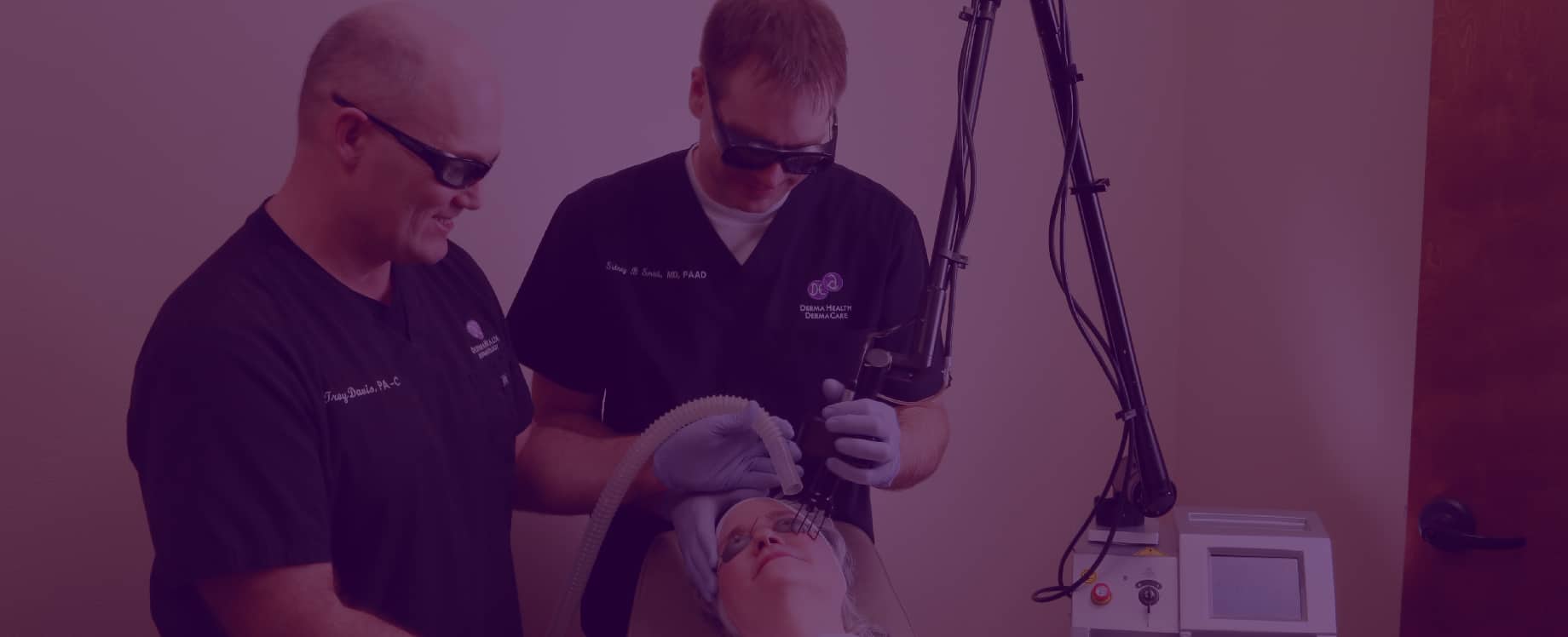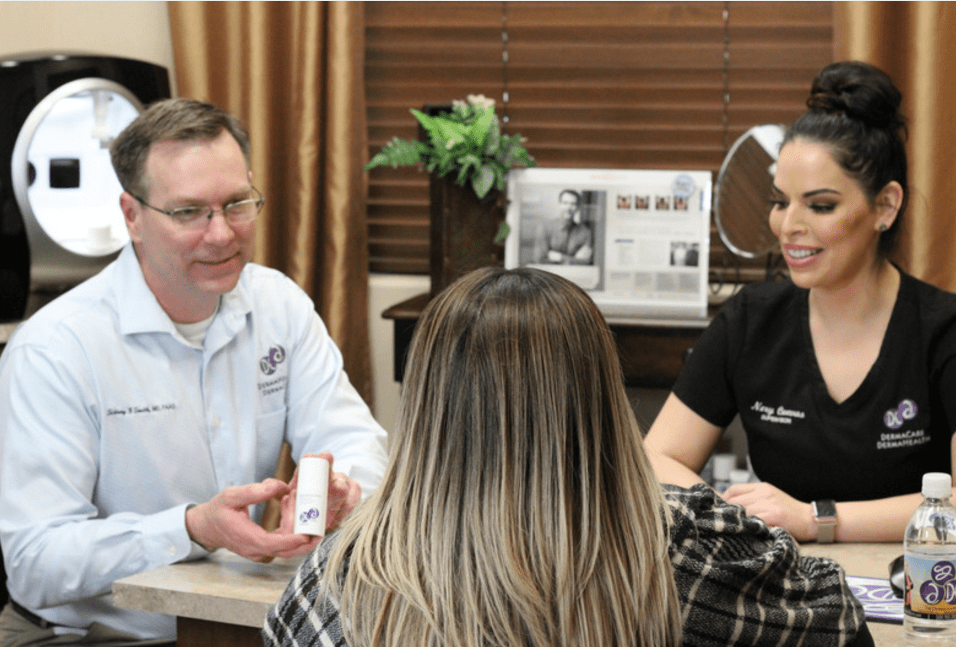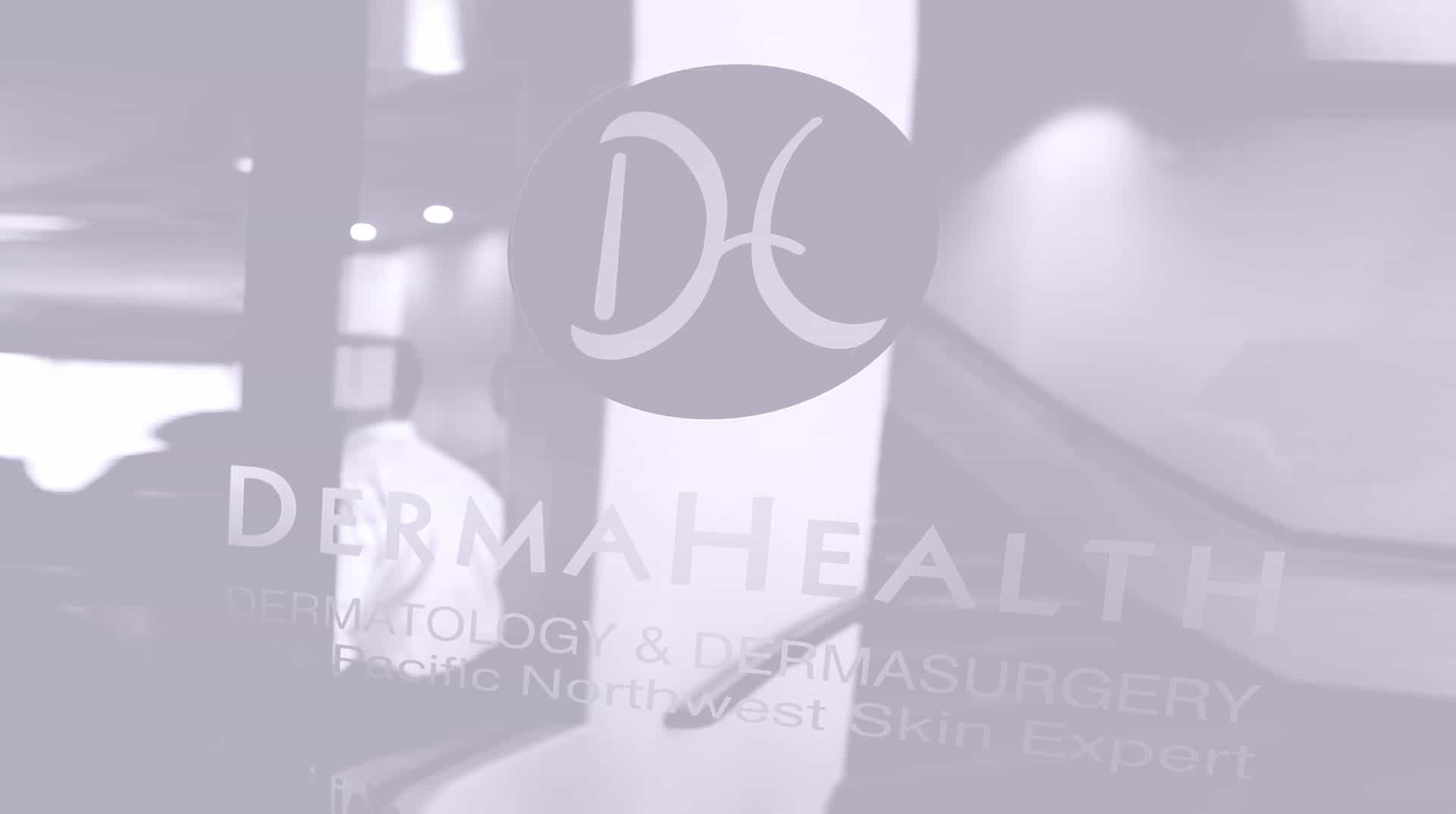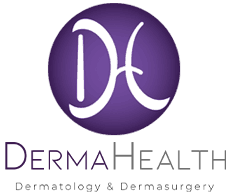
Dermasurgery & Skin Procedures

Skin is susceptible to many diseases, discolorations, and growths. It is also damaged by excessive exposure to the sun and the natural effects of aging. In most cases, skin problems requiring dermasurgery and or skin procedures can be performed in the DermaHealth Dermatology & Dermasurgery clinic very comfortably.
Sidney B. Smith, MD, FAAD is a Board Certified Dermatologist. Kathleen M. Stidham, DCNP is a Dermatology Certified Nurse Practitioner. Troy A. Davis, PA-C, Austin Lee, PA-C, and Gary Strong, PA-C, are Certified Physician Assistants who specialize in skin, hair, and nails.
We focus on all aspects of medical, surgical and cosmetic diagnosis and treatment of skin, hair and nail conditions.
What Is Dermatologic Surgery?
We provide dermatological services for all ages from newborns -- mature adults.

Thanks to research breakthroughs, clinical advances and instrumentation innovations pioneered by skin surgery experts, the majority of dermatologic surgeries are now minimally invasive and require only local or regional anesthesia.
Four Indications for Skin Surgery
- Establish a definite diagnosis.
- Remove malignant skin cancers.
- Remove benign skin growths that may interfere with the body's normal function, or may cause symptoms such as pain, itching, or bleeding.
- Improve the skin's cosmetic appearance caused by aging, sunlight, surgery, injury or disease.

Shave biopsy
Punch biopsy
Snip biopsy
Surgical Excision
Cryosurgery
ED&C
Surgical Excision
Mohs Micrographic Surgery
Margin Control Staged Excision
Electronic Brachytherapy
Fractionated CO2 Laser Resurfacing
Excimer Laser
Chemical Peels
Photodynamic Therapy
Laser Therapy for Nail Fungus
Botox for Sweating
Intralesional Injections
Patch Testing
Wart Treatments
Fractionated CO2 Laser Resurfacing
Scar Revision
Mole Removal
Soft Tissue Augmentation (fillers)
Tattoo Removal
Vein Treatments
Chemical Peels
Neuromodulators (Botox)

First, we identify the skin issues and Diagnose.
Next, we treat using a variety of procedures.
Finally, cosmetic treatments can positively improve your skin.

Diagnose
Biopsies (Shave, Punch, & Snip)
Surgically removing the lesion or a sample of the skin lesion for examination under the microscope for diagnosis after local anesthesia has been used. The specific surgical technique (punch, shave or snip) is determined by your DermaHealth Skin Expert at the time of the treatment.
Surgical Excisions
Surgically cutting into the skin down to the subcutaneous layer (fat) after local anesthesia, removing the lesion, and then closing the wound with stitches. This surgical procedure is commonly used to remove skin cancers (malignant melanoma, squamous cell carcinoma, basal cell carcinoma), cysts, moles, lipomas (fatty deposits), or any other skin growth or lesion.
Treat
CryoSurgery (liquid nitrogen)
Spraying liquid nitrogen (-196º=C, -293º=F, 77.15º=K) onto the skin to destroy the tissue. Commonly used to treat actinic keratoses (pre-cancers), verruca (warts), acrochordons (skin tags), molluscum contagiosum, and seborrheic keratoses (wisdom spots).
Excisional Biopsy
Surgically cutting into the skin down to the subcutaneous layer (fat) after local anesthesia, removing the lesion, and then closing the wound with stitches. This surgical procedure is commonly used to remove skin cancers (malignant melanoma, squamous cell carcinoma, basal cell carcinoma), cysts, moles, lipomas (fatty deposits), or any other skin growth or lesion.
Mohs Micrographic Surgery
This advanced surgical technique was initially developed by Dr. Frederic E. Mohs- thus the name. The procedure involves removing a tumor and immediately examining the tissue under the microscope to determine the extent of malignant cells before more tissue is removed, if necessary. While the procedure is time-consuming, it yields a very high cure rate (up to 99%). Because it conserves as much normal tissue as possible, it is known as a tissue sparing technique. Mohs is used for large or aggressive tumors and tumors located in areas of high risk for recurrence.
Electronic BrachyTherapy (eBx)
Electronic brachytherapy (eBx) is a non-surgical option for treating skin cancers, such as Basal Cell Carcinomas and Squamous Cell Carcinomas. Electronic Brachytherapy is painless, noninvasive, and does not require needles, cutting, or sutures. During each treatment in the clinic, a small applicator is placed on the skin directly over the affected site to safely deliver x-ray radiation to the cancerous lesion only, not affecting the surrounding healthy tissue or organs. The actual treatment takes only a few minutes to perform. The eBx process causes less scarring and delivers excellent cosmetic results. This treatment is used on sensitive areas (face, head, neck, hands, shins, etc.) and eliminates the need for reconstructive procedures due to tissue destruction. This is a distinct advantage, especially for those with difficulty healing, such as patients who are elderly, have diabetes, peripheral vascular disease or are taking anti-coagulant medication.ElectroDesiccation and Curettage (ED&C)
Electrodesiccation and Curettage (ED&C) is a surgical procedure for the removal of certain cutaneous skin lesions (i.e., superficial basal cell carcinoma, squamous cell carcinoma in-situ, actinic keratosis – precancers, warts, seborrheic keratosis, etc). After local anesthesia, the skin expert uses the curette to scrape away the abnormal cells and or growth down to the normal tissue. Then the hydrecation (desiccation or cauterization) is used to stop the bleeding. This process is repeated twice, if needed, before bandaging.


